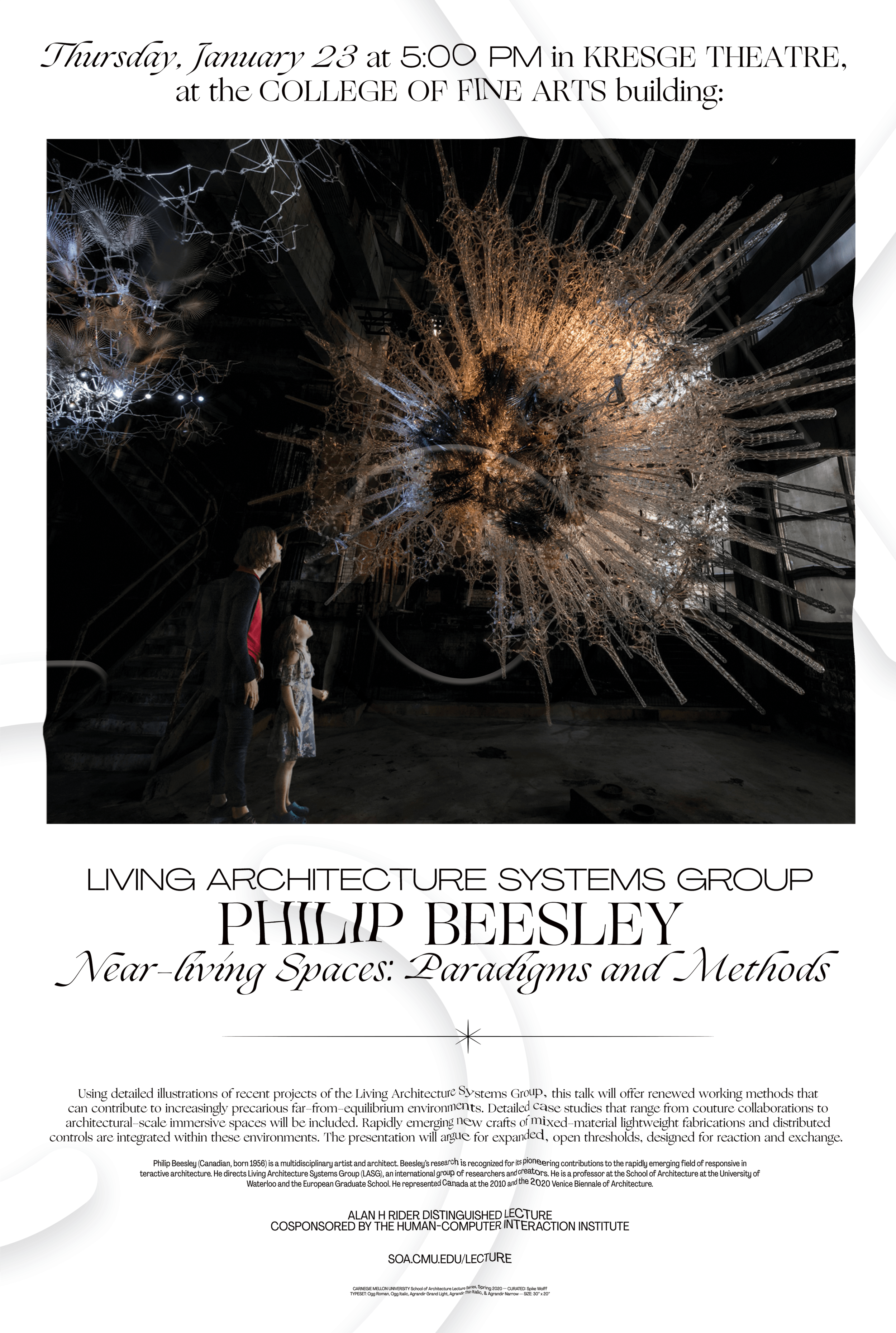PHILIP BEESLEY
PHILIP BEESLEY ARCHITECT
LIVING ARCHITECTURE SYSTEMS GROUP
Near-living Spaces: Paradigms and Methods
Th 23 Jan | 5:00pm | Kresge Theatre
Alan H Rider Distinguished Lecture
cosponsored by the Human-Computer Interaction Institute
Philip Beesley presents “Near-living Spaces: Paradigms and Methods” during the first event of the 2020 Spring Lecture Series on Thursday 23 January at 5:00pm in Kresge Theatre.
Beesley, a multidisciplinary artist and architect, directs Living Architecture Systems Group (LASG), an international group of researchers and creators. Using detailed illustrations of recent LASG projects, his talk will offer renewed working methods that can contribute to increasingly precarious far-from-equilibrium environments.
NEAR-LIVING SPACES: PARADIGMS AND METHODS. Using detailed illustrations of recent projects of the Living Architecture Systems Group, this talk will offer renewed working methods that can contribute to increasingly precarious far-from-equilibrium environments. Detailed case studies that range from couture collaborations to architectural-scale immersive spaces will be included. Rapidly emerging new crafts of mixed-material lightweight fabrications and distributed controls are integrated within these environments. The presentation will argue for expanded, open thresholds, designed for reaction and exchange.
PHILIP BEESLEY is a multidisciplinary artist and architect. Beesley’s research is recognized for its pioneering contributions to the rapidly emerging field of responsive interactive architecture. He directs Living Architecture Systems Group (LASG), an international group of researchers and creators. He is a professor at the School of Architecture at the University of Waterloo and the European Graduate School. He represented Canada at the 2010 and the 2020 Venice Biennale of Architecture. The work of the LAS evolves through collaborative exchanges with an international network of scientists, engineers, and artists including engineering leads Rob Gorbet and Dana Kulić at Waterloo, Atelier van Herpen, Salvador Breed and 4DSOUND in Amsterdam, among many others. Collaborations with LAS artists, scientists, and engineers has led to a diverse array of projects, from haute couture collections to complex electronic systems that can sense, react, and learn. This experimental architecture explores the subtle phenomena and constantly-changing boundaries at the outer edges of current technology. Beesley is known for his continuous collaboration work with Dutch haute couture fashion designer Iris van Herpen since 2012, including contributions to over 13 collections.

